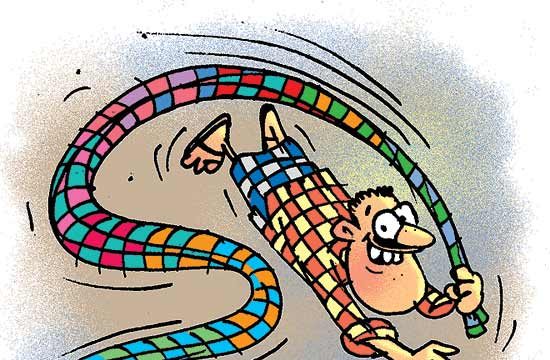Fishermen sport them in a style all their own. The Africans covered their heads with them. The mamis of Madras wear them with aplomb. Cowboys tucked them into their jeans in movies and became style icons. Adventurers that they were, the traders of the last century carried orders from the markets to the Madras Presidency, which included most of Andhra Pradesh, to be made by nimble fingers in remote villages. Madras Checks have had a long and chequered history. In bright colours and textured surfaces, often with shiny threads to please users in Africa, the RMHK (real Madras Handkerchief) had a long innings in Africa, where it was exported for hundreds of years. It travelled strange routes from small villages in the Madras Presidency to be treasured as the sacred ‘Injiri’ or the ‘real Madras’ or ‘real India’ there. A square piece of cotton, with squares within, mainly in pastels of red, blue and white, it was used to cover the new-born as also the departed loved one’s body. With World War II, fortunes changed. Old markets fell. The trade routes transferred their loyalties westward. Palettes and patterns were transformed to suit Western tastes and the checked shirts sported the world over took on a smarter name—Madras Checks. Today, machines have replaced he thousands of weavers whose skilled hands had over the centuries thrown the shuttle. The weavers have faded away, but Madras Checks continue to be popular in thousands of variations and colour combinations, from Dallas (as smart shirts) to Dodhayya in eastern UP (as lungis)
Local knowledge: Madras Checks
Madras Checks continue to be popular in thousands of variations and colour combinations, from Dallas to Dodhayya

Local knowledge: Madras Checks
Local knowledge: Madras Checks



